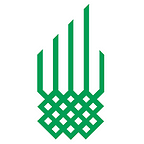New mother revitalises traditional crafts whilst giving to the most vulnerable in her village
Beyond threat of illness, there are hidden impacts of the global pandemic with profound consequences for everyday life. From feelings of isolation to financial hardship, women face unique challenges as physical distancing requires home-schooling for children, less access to childcare, and a decrease in economic opportunities.
Before the pandemic, Malika Borakova, a new mother from the Rin village of the Ishkashim district in Tajikistan, decided to bring together nine female farmers to revitalise traditional sewing and handicrafts. This allowed a community of women to come together and created an opportunity for additional income and strengthening their sewing and craft skills. With the help of the Mountain Societies Development Support Programme (MSDSP), an initiative of the Aga Khan Foundation (AKF), and The Christensen Fund (TCF) the group was able to acquire sewing machines. Typically, these projects would include sewing traditional clothes, hats and making beads.
When the pandemic hit, these women were determined to address the needs of their community to keep everyone safe, so Malika altered the workshop’s activities from sewing traditional dresses to sewing personal protective equipment (PPE) and masks.
“We noticed that access to face masks was limited in drug stores and that personal protective uniforms were not available at all. Besides, the price of a single mask was TJS 4, which is too expensive for many poor people here,” said Malika.
Malika and her group decided to distribute masks free of charge to the most vulnerable households, to ensure everyone had adequate protection from the virus.
Read about the impact of Malika’s work in her full interview here:
When did you first hear about COVID-19? What did you think or feel at that time?
The first time I heard about COVID-19 was on TV through the Daily News channel. After browsing Internet news sources, we found out that this virus spreads quickly and so we assumed it would eventually reach our village, and that was scary. Although in Tajikistan the first cases of COVID-19 were not confirmed until the end of April 30, we started preparation for combating COVID-19 long before that.
In January, the MSDSP, an initiative of AKF, provided our group with sewing machines. The machines were for our sub-project, ‘Revitalisation of folk crafts: sewing traditional dresses, hats and beads.’ But when COVID-19 was announced as a global pandemic, we decided to include additional tasks into our work, such as sewing face masks and personal protective uniforms, which were scarce in our area.
How has COVID-19 had an impact on you and your community?
COVID-19 has affected every single household. For us, we could no longer work together in our sewing workshop. Due to self-protection and government restrictions for the prevention of COVID-19, group members could not gather in one place. This was hard because working together is a very important aspect of our work, since we discuss clothing designs and jointly create great ideas and products. It was also a good stress release for us women to work together and talk about daily life and community-related events. Now we are working individually from home.
Some poor families did not even have enough proper food to consume during the pandemic, as their savings would dwindle because no one could work. Almost every single household has a family member in Russia who had typically been supporting them financially. Due to the pandemic, they stopped receiving this money and there are no alternatives to support families. Thus, demand for our clothes also fell, as people needed their money to buy essential items like food and health supplies.
How are you contributing to the fight against this pandemic? Why are you taking action?
We noticed that access to face masks was limited in drug stores and that personal protective uniforms were not available at all. Besides, the price of a single mask was TJS 4, which is too expensive for many people here. So, on April 10 we arranged a meeting and decided to prepare face masks which can be washed and used multiple times. We started to sew masks and told the government about this initiative. The local government supported us and requested that we sew masks for all their departments. Overall, we have sewed 3,281 masks and sold 2,111 for TJS 5,649. I have distributed this income to the group members and they used it for food and medicine.
Realising that the poorest households in the village are not in a position to afford medicines and masks, we distributed 130 masks free of charge to the most vulnerable households and sewed 138 masks free of charge. A group of volunteers have been distributing these to the households that need them the most, as saving money on these masks will allow them to afford food and other necessities.
The group has also produced personal protective uniforms and 300 masks free of charge for local volunteers who are disinfecting residential houses and streets.
Our village is quite small and does not have many opportunities, but people are nice enough to help and support each other. As a community member I want to help and understand other people’s needs, because there are families who cannot work or families with elderly people that can’t afford medicines and masks. So, we need to support them during the pandemic. This is why we have distributed so many free masks and PPE.
What is one thing you would like to say to the rest of the world, about this global challenge we are all facing together?
I want to say that people should believe that they will beat COVID-19. Whatever the government officials, WHO, and health workers say, we should follow their instructions. We must protect ourselves first and then we can protect others around us.
Thank you, Malika.
